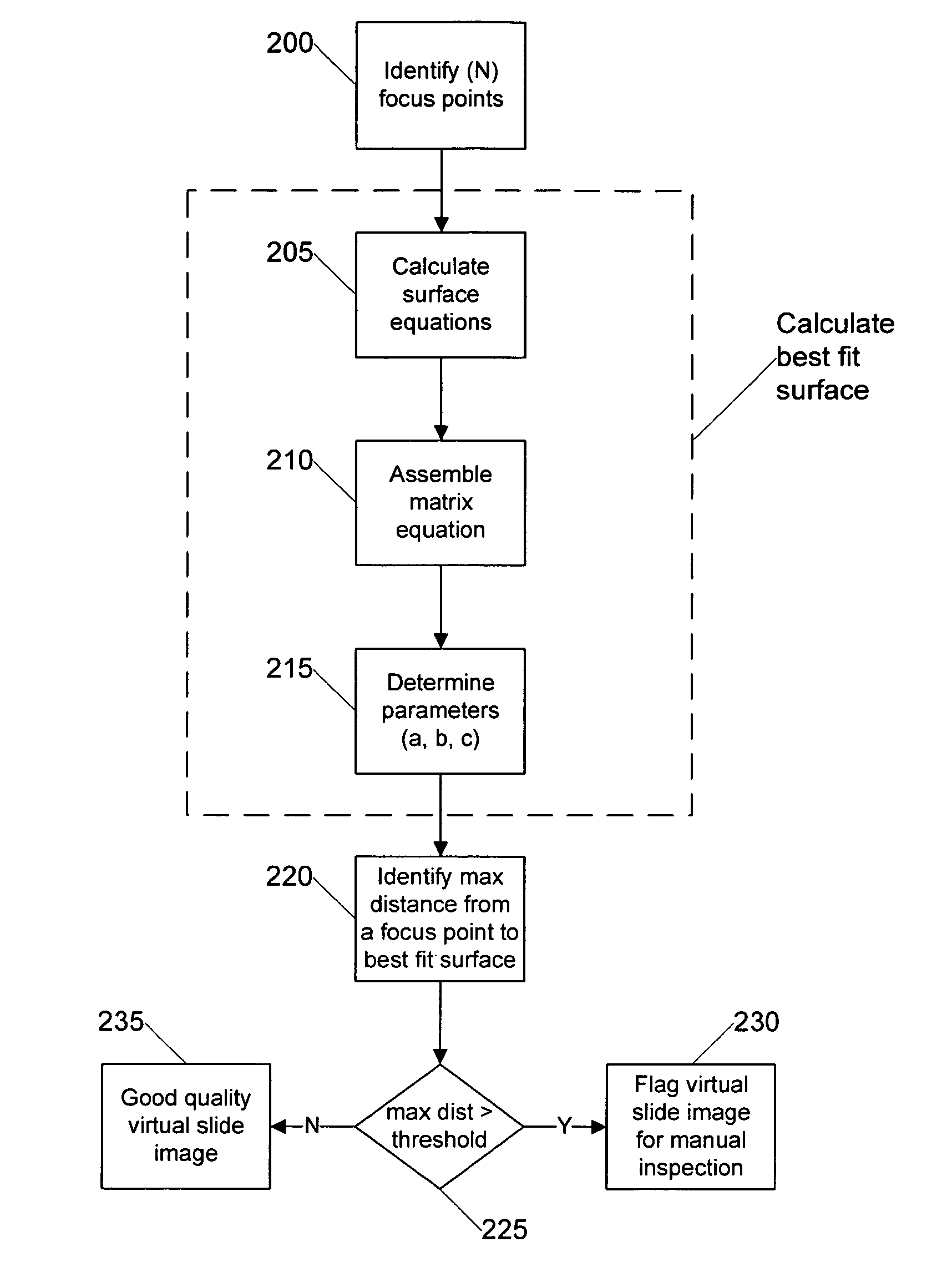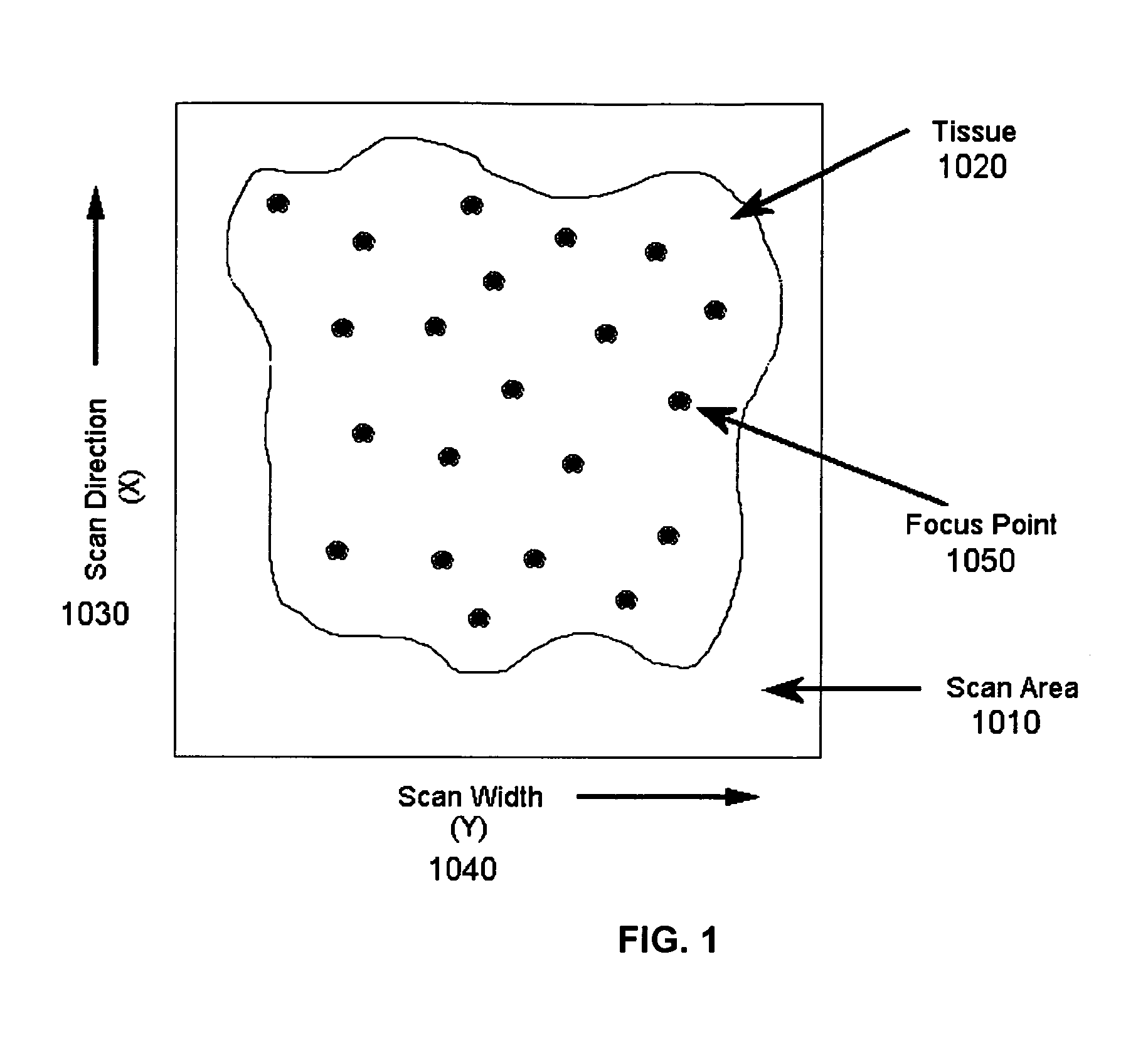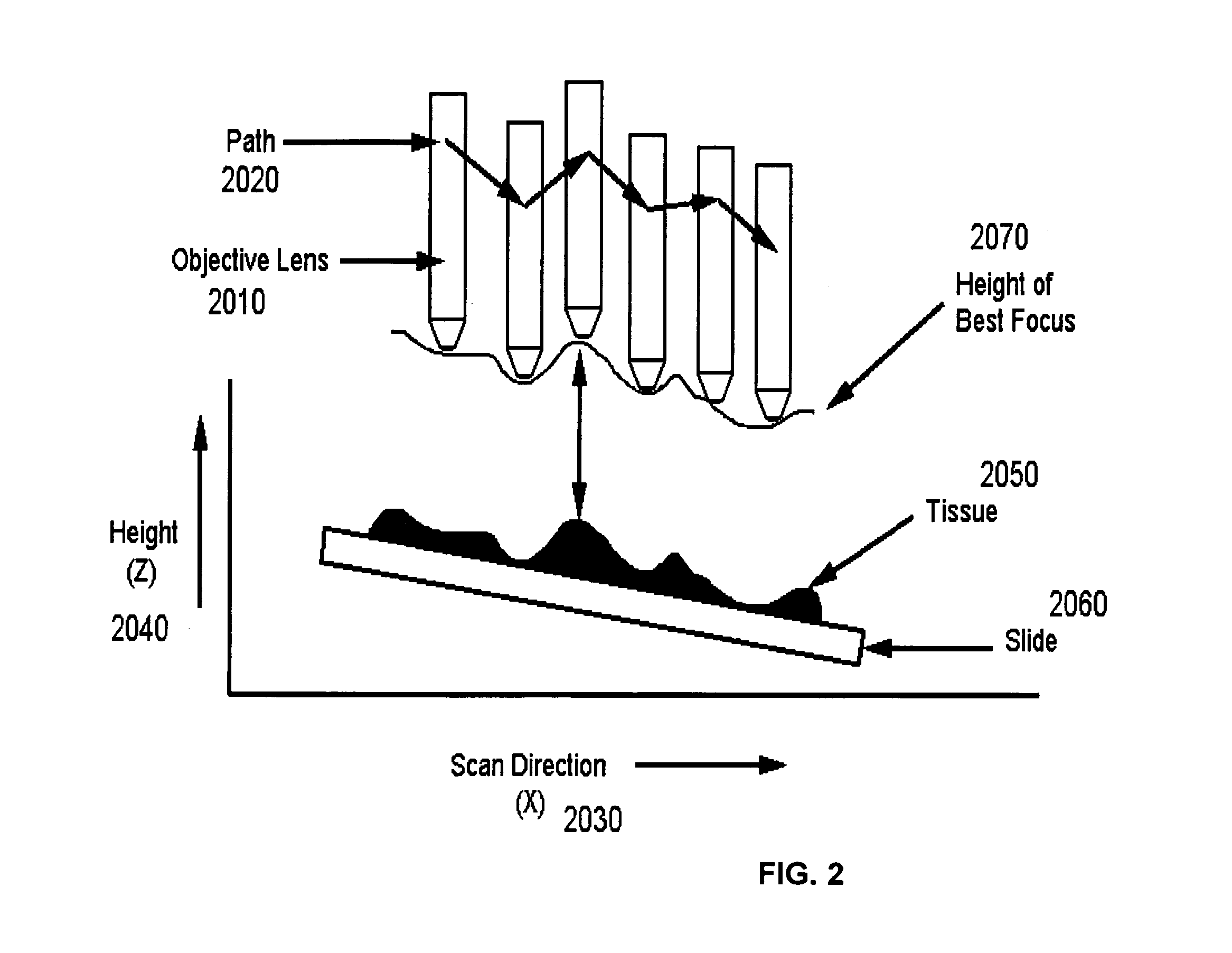System and method for assessing virtual slide image quality
a virtual slide and image quality technology, applied in the field of virtual microscopy, can solve the problems of difficult to accurately assess the image quality of the virtual slide, the perimeter area of the image tile is out of focus, and the limitations of conventional image tiling solutions, so as to increase the likelihood of time-consuming re-scans and increase the likelihood of re-scans
- Summary
- Abstract
- Description
- Claims
- Application Information
AI Technical Summary
Benefits of technology
Problems solved by technology
Method used
Image
Examples
Embodiment Construction
[0025]Certain embodiments as disclosed herein provide for systems and methods for assessing virtual microscope slide image quality to determine whether a virtual slide image has any out of focus areas and is therefore a candidate for manual inspection. For example, one method as disclosed herein allows for the various focus points used to scan the virtual slide image to be used in calculating a best fit surface for the virtual slide image. The distance of each focus point from the best fit surface is then calculated and the largest distance is compared to a predetermined value. If the largest distance from a focus point to the best fit surface is larger than the predetermined value, then the virtual slide image is designated as needing a manual inspection and possible re-scan.
[0026]After reading this description it will become apparent to one skilled in the art how to implement the invention in various alternative embodiments and alternative applications. However, although various e...
PUM
 Login to View More
Login to View More Abstract
Description
Claims
Application Information
 Login to View More
Login to View More - R&D
- Intellectual Property
- Life Sciences
- Materials
- Tech Scout
- Unparalleled Data Quality
- Higher Quality Content
- 60% Fewer Hallucinations
Browse by: Latest US Patents, China's latest patents, Technical Efficacy Thesaurus, Application Domain, Technology Topic, Popular Technical Reports.
© 2025 PatSnap. All rights reserved.Legal|Privacy policy|Modern Slavery Act Transparency Statement|Sitemap|About US| Contact US: help@patsnap.com



